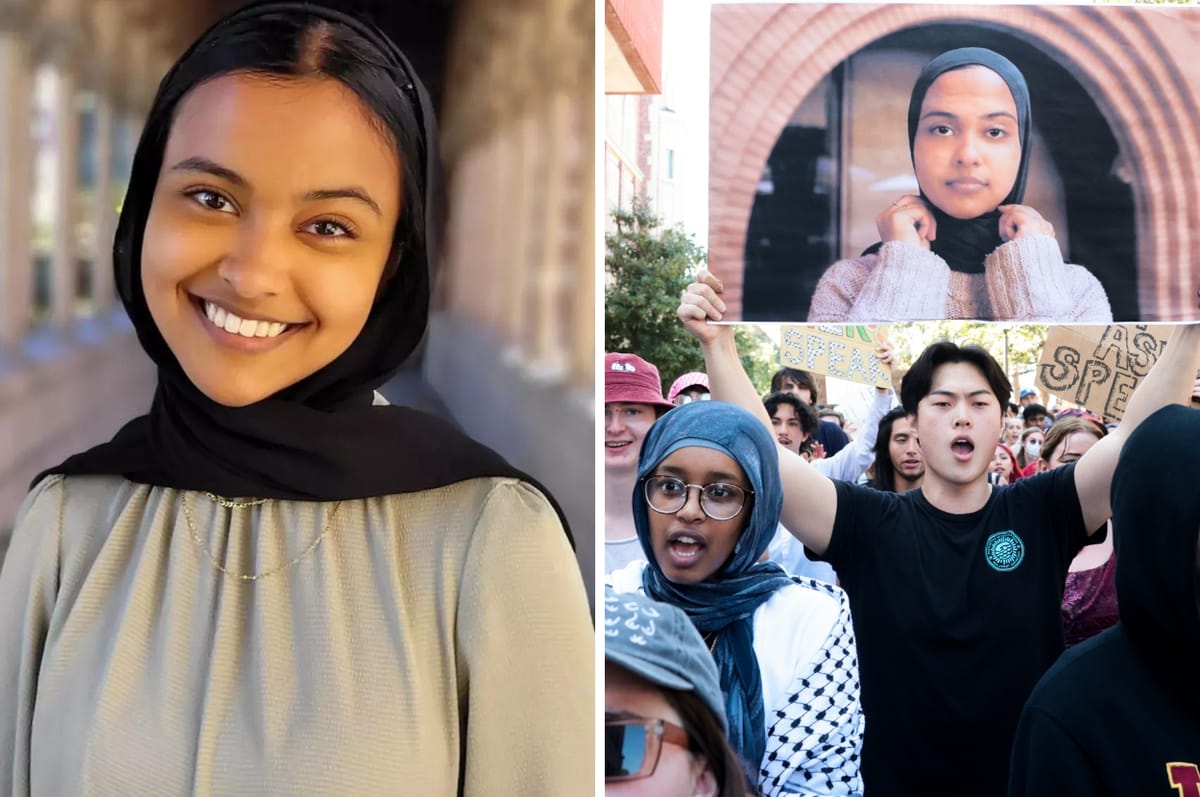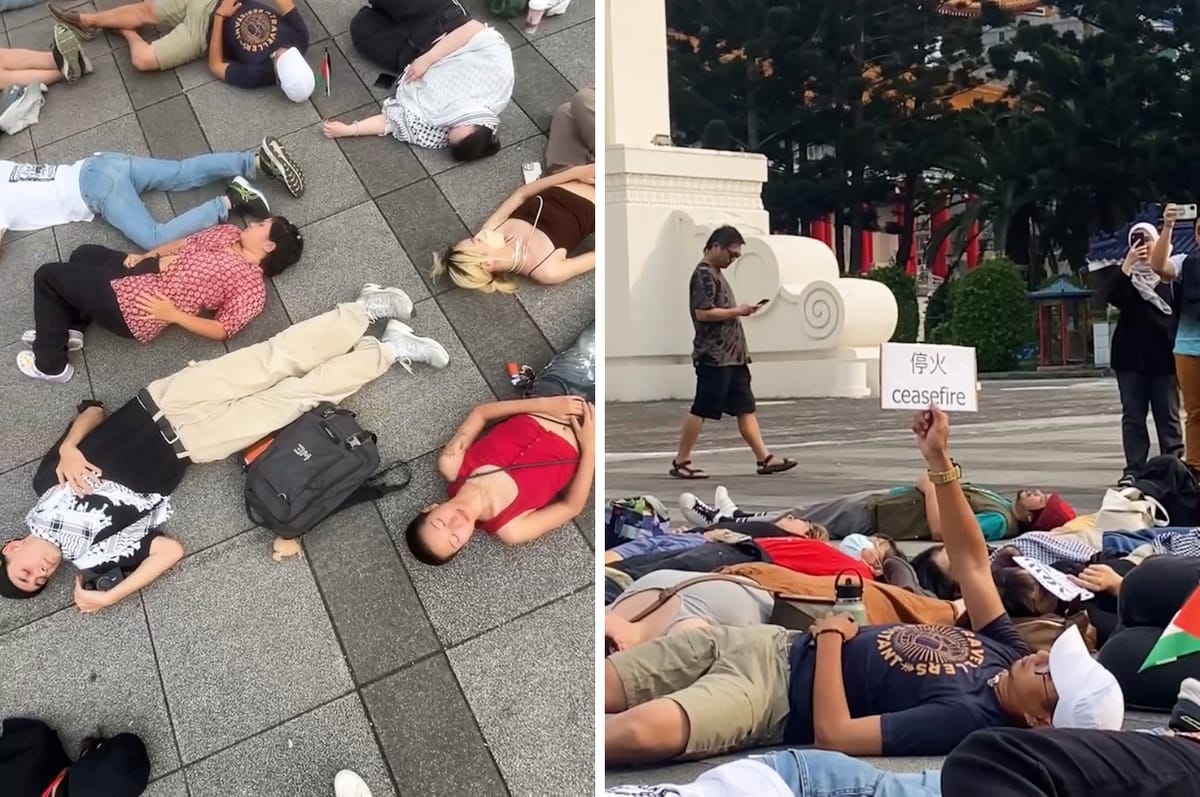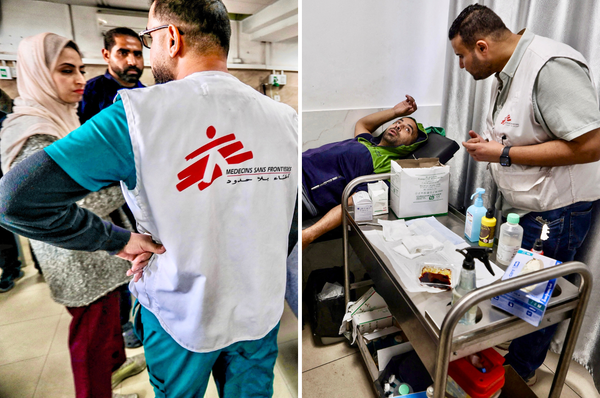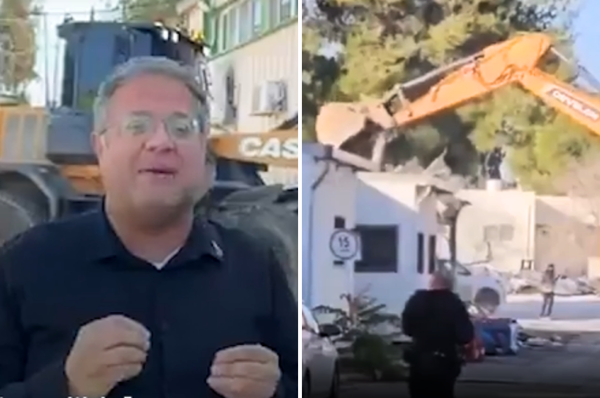Will Gen Z Help Free Palestine? The Students Staging Encampments At UC Berkeley Believe So
We asked some of the students holding the encampments at UC Berkeley in California why they believe it’s important to continue to show up for Palestinians.
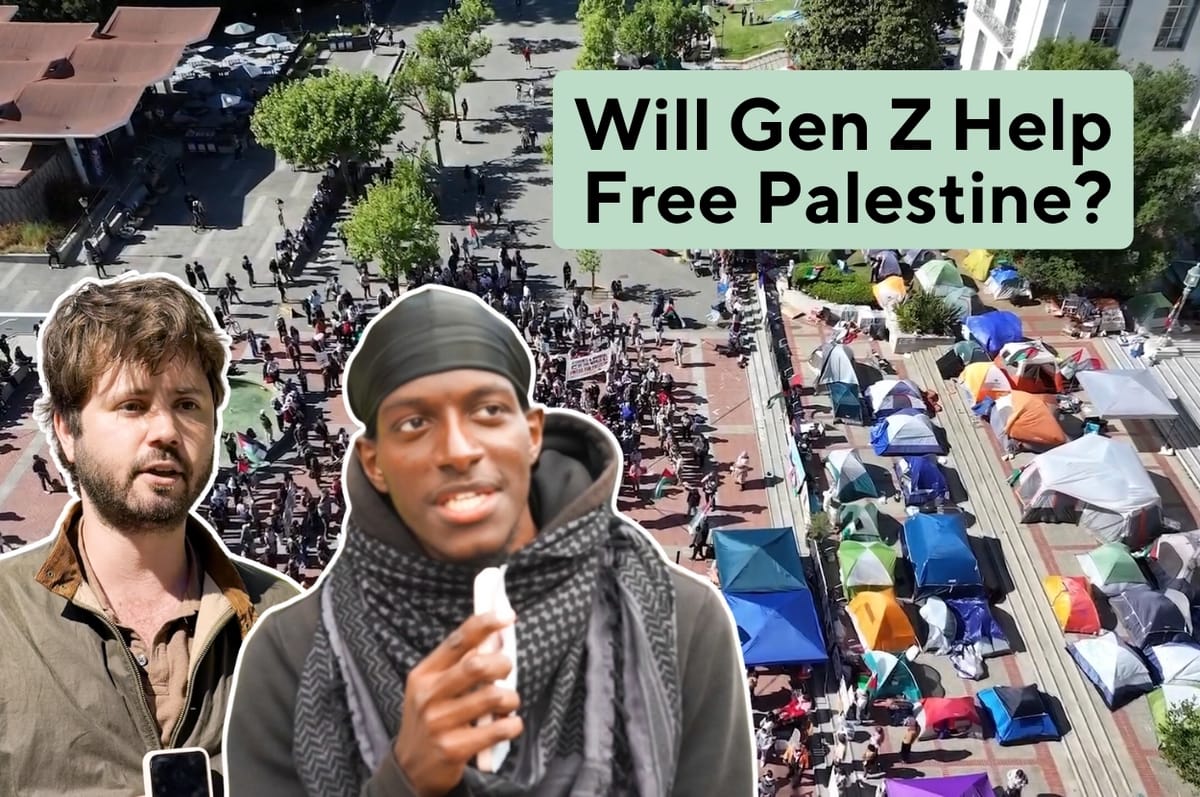
In April, students across universities in the US began holding encampments in support for Palestine, demanding their schools divest from Israel over its genocide against Palestinians in Gaza.
We asked some of the students holding the encampments at UC Berkeley in California about why they believe it’s important to continue to show up for Palestinians.
"If everybody was aware of or experienced even a fraction of the struggle that the Palestinians and Gazans are facing on a daily basis, I feel like we would all be here," 21-year-old Yousuf, a senior, told Almost.
"So what we are doing at this camp, it is the bare minimum," he added.
Matthew Kovac, a 32-year-old graduate student, said that the genocide in Gaza is hitting home in Berkeley as the university has invested in companies that are facilitating Israel's genocide in Gaza.
"What we are seeing across the country right now is a historic mass mobilization in defense of Palestinian life and liberation. Being here at Berkeley, on a campus that is so historically known as being a bastion of sort of social justice and human rights work, it's really important that we are able to make these connections across the decades and to understand that we are living in another moment, where you really cannot tip the balance on way or another," Kovac said.
"It's really important that we come out in solidarity with the Palestinian people," he added.
Despite the police crackdown, the students holding encampments remained steadfast.
Their actions have become a global movement, with similar encampments cropping up all over the world and eventually led to several universities divesting from companies that support Israel.
Speaking at the encampment, Ussama Makdisi, a professor of history, said all students of different faiths studying at UC Berkeley are working together to build on "the future of equality, justice, and freedom."
"That is something incredible, full of love and full of amazing spirit," he said.
Makdisi went on to say that many people in the US and in academia have pretended that the genocide in Gaza will stop if they do not talk about it as they believe it is neither important nor relevant.
"But what we are seeing is that it's come back with a vengeance. And the more they deny it, the more there is going to be affirmation," he said. "The more hate, the more love. The more denial, the more resistance."
